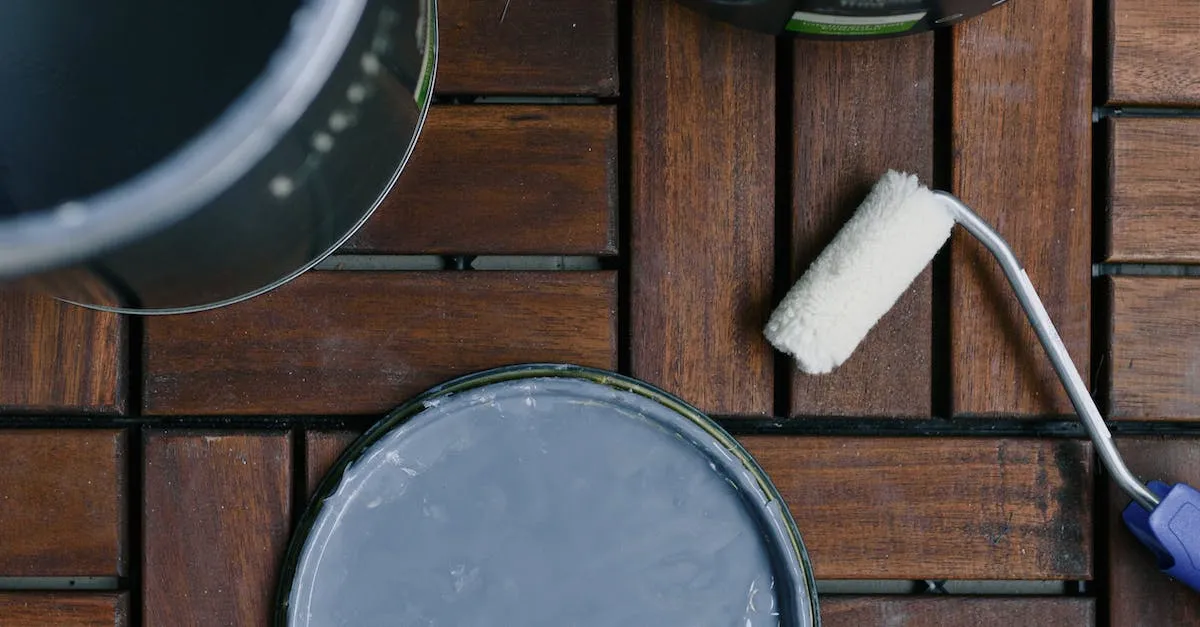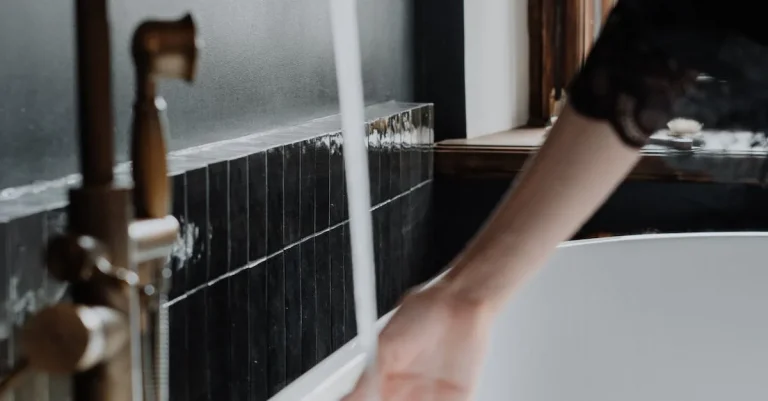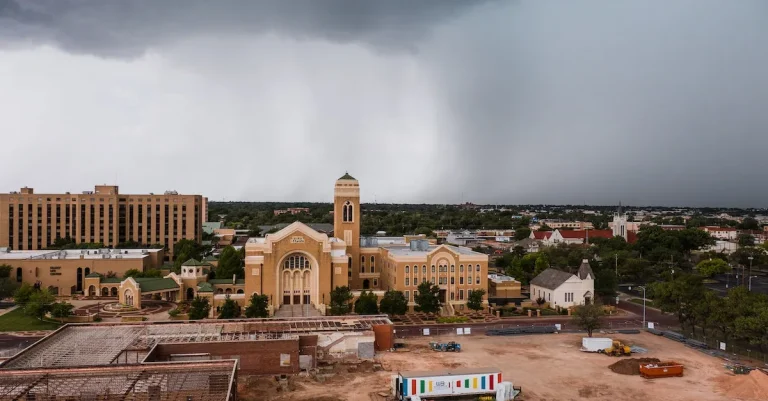Can I Build My Own House In Florida? A Guide To Legal Diy Home Building
For many, building a dream home with their own two hands offers the ultimate satisfaction and freedom. But before grabbing a hammer, it’s key to understand Florida’s legal landscape for owner-built homes.
If you’re short on time, here’s the quick answer: Yes, Florida allows construction of homes by owners acting as their own contractor, but obtaining proper permits and inspections is mandatory.
This comprehensive guide covers everything you need to legally DIY a house build in Florida. We’ll outline permit and inspection requirements, building code regulations, using subcontractors vs. self-performing work, common hurdles for owner-builders, costs and timelines, and more.
Permitting and Inspections for DIY Homebuilding in Florida
When it comes to building your own house in Florida, there are certain permitting and inspection requirements that you need to be aware of. These requirements ensure that your home is safe and complies with the state’s building codes.
In this guide, we will walk you through the process of obtaining the necessary permits and completing inspections for your DIY homebuilding project.
Building Permits
Before you start construction on your DIY home, you will need to obtain a building permit from the local building department. This permit is required to ensure that your home meets the minimum safety standards set by the state.
The process of obtaining a building permit involves submitting detailed plans and specifications of your home to the building department for review. Once your plans are approved, you will be issued a building permit, which allows you to start construction.
It’s important to note that the requirements for obtaining a building permit may vary depending on the location within Florida. Some areas may have additional requirements or restrictions, so it’s always a good idea to check with your local building department for specific guidelines.
Subcontractor Permits
In addition to obtaining a building permit, you may also need to obtain subcontractor permits for certain aspects of your DIY homebuilding project. Subcontractor permits are required when you hire licensed professionals, such as electricians or plumbers, to perform specific tasks during the construction process.
For example, if you plan to hire an electrician to install your home’s electrical system, they will need to have a valid electrical contractor’s license and obtain the necessary permits for their work.
This ensures that the electrical work is done safely and in compliance with the state’s building codes.
Inspection Requirements
Throughout the construction process, your DIY home will need to be inspected at various stages to ensure that it is being built according to the approved plans and in compliance with the building codes.
These inspections are typically conducted by the local building department or a certified building inspector.
The specific inspection requirements may vary depending on the location and complexity of your project. However, common inspections include foundation inspections, framing inspections, electrical inspections, plumbing inspections, and final inspections.
These inspections help to ensure that your home is structurally sound and meets all safety requirements.
It’s important to schedule these inspections in advance and coordinate with the building department to ensure that they are conducted at the appropriate stages of your project. Failure to comply with inspection requirements can result in fines or delays in the construction process.
For more information on the permitting and inspection requirements for DIY homebuilding in Florida, you can visit the official website of the Florida Department of Business and Professional Regulation: https://www.myfloridalicense.com/.
Remember, obtaining the necessary permits and completing inspections is crucial when building your own house in Florida. By following the proper procedures, you can ensure that your home is safe, structurally sound, and complies with all applicable building codes.
Building Codes and Zoning Laws in Florida
When it comes to building your own house in Florida, it’s important to have a good understanding of the building codes and zoning laws in the state. These regulations are in place to ensure the safety and integrity of structures, as well as to maintain the aesthetics and functionality of neighborhoods.
State Building Codes
Florida has a comprehensive set of building codes that govern construction practices in the state. These codes cover everything from structural requirements to electrical and plumbing systems. The purpose of these codes is to establish minimum standards for construction, ensuring that buildings are safe and durable.
The Florida Building Code (FBC) is the primary set of regulations that apply to residential construction. It incorporates various national model codes, such as the International Building Code and the National Electrical Code, with amendments specific to the state of Florida.
It’s important to note that the FBC is constantly evolving, with updates and revisions being made regularly. Therefore, it’s crucial to stay up to date with the latest version of the code when planning and constructing your own home.
Local Zoning Ordinances
In addition to state building codes, you’ll also need to consider the local zoning ordinances that apply to your specific area. Zoning laws regulate land use and determine what types of structures can be built in different zones, such as residential, commercial, or industrial.
These ordinances dictate various aspects of construction, including setback requirements, lot size restrictions, height limitations, and even design guidelines. They are designed to ensure that new buildings are compatible with the existing character of the neighborhood and that they do not negatively impact surrounding properties.
It’s important to contact your local city or county planning department to obtain information on the specific zoning regulations that apply to your property. They can provide you with the necessary permits, guidelines, and restrictions that you’ll need to follow when building your own home.
Remember, building codes and zoning laws exist to protect you, your neighbors, and future homeowners. By adhering to these regulations, you can ensure that your DIY home construction project is done safely and legally, resulting in a beautiful and functional home that you can be proud of.
Using Contractors vs. Self-Performing Work
When it comes to building your own house in Florida, you have the option of using contractors or self-performing the work. Each approach has its own set of advantages and considerations. Let’s take a closer look at these two options.
Licensed Subcontractors
One of the main benefits of using contractors is that they often have a network of licensed subcontractors they work with regularly. These subcontractors have specialized skills and knowledge in specific areas of construction, such as plumbing, electrical work, or roofing.
By hiring contractors, you can tap into their pool of trusted professionals, ensuring that each aspect of your home building project is handled by qualified experts.
Additionally, licensed subcontractors are required to carry liability insurance and workers’ compensation insurance. This provides an extra layer of protection for you as the homeowner. In the event of an accident or damage during the construction process, you can have peace of mind knowing that you won’t be held financially responsible.
Pro Tip: To find licensed subcontractors in Florida, you can visit the website of the Florida Department of Business and Professional Regulation (https://www.myfloridalicense.com/). They have a searchable database where you can verify the licenses of contractors and subcontractors.
Homeowner Responsibilities
If you decide to self-perform some or all of the work, it’s important to understand the responsibilities that come with it. As the homeowner, you will be responsible for obtaining all necessary permits and ensuring that the construction meets the building codes and regulations set by the state and local authorities.
Self-performing the work can save you money, but it requires a certain level of skill and knowledge in construction. You’ll need to have a solid understanding of various trades, such as carpentry, plumbing, and electrical work.
It’s also essential to have the necessary tools and equipment to carry out the tasks effectively and safely.
Pro Tip: Before taking on any self-performing work, consider attending workshops or courses offered by local building associations or community colleges. These resources can provide you with valuable knowledge and skills needed for successful home construction.
Common Hurdles and Mistakes for Owner-Builders
Permit Denials
One of the most common hurdles that owner-builders face when constructing their own homes in Florida is the denial of building permits. Building permits are required to ensure that construction projects comply with local building codes and regulations.
However, obtaining a permit can be a complex process, especially for those without prior experience in the construction industry.
Owner-builders often encounter permit denials due to a lack of knowledge about the specific requirements and documentation needed for approval. It is crucial to thoroughly research and understand the local building codes and regulations before submitting a permit application.
Additionally, seeking guidance from professionals such as architects or contractors can greatly increase the chances of obtaining a permit.
Website: Florida Building
Inspection Failures
Another common mistake made by owner-builders in Florida is failing to pass inspections during the construction process. Inspections are conducted at various stages of the building process to ensure that the construction meets safety and quality standards.
Failure to pass inspections can result in costly delays and the need for rework.
Owner-builders often underestimate the importance of thorough planning and attention to detail when it comes to meeting inspection requirements. It is essential to familiarize oneself with the inspection process and schedule inspections at the appropriate stages of construction.
Hiring licensed professionals for specialized tasks, such as electrical or plumbing work, can also help ensure compliance with inspection standards.
Website: Florida Department of Business and Professional Regulation
Costs, Timelines, and Resources for DIY Homebuilding
Building your own house in Florida can be an exciting and rewarding endeavor. However, before embarking on this DIY journey, it’s important to understand the costs, timelines, and resources involved. By being well-prepared and informed, you can save money and ensure a successful homebuilding project.
Cost Considerations
One of the primary advantages of building your own house in Florida is the potential cost savings. Hiring a professional builder can be expensive, so taking on the project yourself can help you cut costs significantly. However, it’s essential to carefully consider the expenses involved.
Materials: Researching and sourcing materials can be time-consuming, but it can also save you money. By comparing prices, looking for discounts, and considering alternative options, you can find affordable yet high-quality materials for your home.Permits and Inspections: Before starting any construction, you’ll need to obtain permits and schedule inspections to ensure compliance with local building codes. These costs can vary depending on the size and complexity of your project.Tools and Equipment: Investing in the right tools and equipment is crucial for a successful DIY homebuilding project. While purchasing new tools can be costly, consider borrowing or renting them to minimize expenses.
Timeline Considerations
Building a house takes time, and it’s important to have realistic expectations regarding the timeline of your DIY project. While it can be challenging to estimate the exact duration, here are a few factors to consider:
Planning and Design: This stage involves creating a detailed plan, obtaining necessary permits, and finalizing your house design. Depending on the complexity of your project, this process can take several weeks or even months.Construction: The actual construction phase can range from a few months to over a year, depending on the size and complexity of your home. It’s essential to allocate sufficient time for each step and be prepared for unforeseen delays.Finishing Touches: Once the construction is complete, you’ll need to focus on the finishing touches, such as painting, flooring, and installing fixtures. This stage can take several weeks, depending on the scope of work.
Resources and Support
While building your own house requires a significant amount of effort, there are resources and support available to help you along the way:
- Online Communities: Joining online forums and communities of fellow DIY homebuilders can provide valuable advice, tips, and support throughout your project.
- DIY Homebuilding Books: There are many books available that provide step-by-step instructions and guidance for building your own home. These resources can be a great reference throughout your project.
- Local Building Associations: Reach out to local building associations or homebuilder groups in Florida. They can provide guidance, recommendations, and resources specific to your location.
Remember, building your own house in Florida requires careful planning, research, and a willingness to learn. While it may seem challenging at times, the sense of accomplishment and the ability to customize your dream home makes it a worthwhile endeavor.
So, go ahead, grab your hard hat, and start building!
Conclusion
While building your own home in Florida requires dedication and hard work, the payoff of constructing your dream house with your own hands makes it worthwhile for many. By securing proper permits, adhering to codes, involving licensed contractors as needed, and avoiding common pitfalls, you can successfully navigate the process.
With realistic budgets, timelines, and access to helpful resources, you can bring your Florida DIY home vision to life and enjoy all the rewards of owner-building.








